by Rabbi Jeffrey Adler
David must have often sat in the evening on the roof of his palace, staring at the heavens and the stars, recounting in his mind all the wonderful things that Adonai had done for him, bringing him from taking care of the sheep of his father, sparing him from wild animals, giving him power to defeat Goliath, establishing him as a great military hero, protecting him from the treachery and paranoia of Saul, and, finally, making him king of all Israel. David would gaze at the stars in amazement at the power and majesty of the One who had been so gracious and faithful to Him.
It must have been this sense of awe that had motivated the psalmist to write the 8th psalm. He composed it, according to the psalm’s prescript, for the gittit, a stringed instrument of Philistine origin to which David might have been exposed when he spent some time among the Philistines while hiding from Saul. The gittit was, apparently, frequently used for upbeat types of music; I cannot help but compare it to the mandolin.
David begins by playing over in his mind the Name of the Lord: “Adonai, Adoneynu, mi adir shimka b’kol ha-aretz!”; “Lord, our Lord, how excellent (or majestic) is Your Name in all the earth!”. So often the Name of the Lord is used in formal or everyday or casual ways, but, when David heard the Name of Adonai, there was a substance, a content, unique to Him that could not be associated with anyone or anything else. When David thought of God, he thought of all the events, words and gracious acts by which God had poured Himself into David’s life and distinguished Himself. No one else could compare to Him.
Verse 3 (in the Masoretic Text) states, “Out of the mouths of babies and toddlers You established power, because of your enemies, to silence the foe and the avenger.” David must have seen himself as merely a child against the backdrop of people and events he had encountered; yet, God had empowered him to overcome in all these situations. Routinely in the Scriptures, God brings deliverance to His people through the most unconventional means and persons, making clear that arrogance is unwarranted and giving hope to the weak and seemingly powerless that there is still a way, and warning oppressors that their power can be thwarted.
In verses 4-5, David takes into account the vastness of God’s Creation, allowing it to fill Him with wonder at what God has done. I remember December, 1968, when the crew of Apollo 8 were orbiting the Moon, the first humans to do so, their reading the Creation account from Genesis 1 as they were humbled by what they were experiencing. David must have felt similarly. “When I consider Your Heavens, the work of Your fingers, the Moon and the stars, which You established- what is Man, that You are mindful of him, and the son of man, that You care for him?” The Hebrew word for man in the first line of verse 5 is “enosh” derived from the verb “anosh”, to be sickly or weak. The sense is clear that man is too frail and powerless to have any capacity to do anything for God that He could not do better for Himself, yet, God chooses to place an infinite value on man, not because of anything other than His own loving choice, for His own reasons, to do so. The verb translated to be “mindful”, “yizkor”, is, literally, the imperfect tense of the verb, to remember. Since the imperfect tense renders continuous action, the sense is that, in spite of all else, God ever remains mindful of His love and care for man.
“Ben adam”, ”son of man” associates man as being the product of the “adamah”, the dirt, as related in Genesis 1. Man’s source is dirt, yet, His value is elevated by the unfathomable loving choice of His Creator. Yet, God chooses to “yiphkod” the imperfect tense of “pakad”, “to visit”. God relates to man ongoingly, despite all his offences.
In spite of man’s lack of great credentials of his own, Adonai has elevated him to staggering heights. In verses 6-9, He has made Him a little lower than “Elohim”, traditionally translated “angels”, but, to be more accurate, “God”. God has given man a status just below His own, above angels, as well as beasts and other beings with greater physical power but lacking the gracious status accorded to man by God Himself.
David’s conclusion, then, is to reprise his opening line: “Adonai, Adoneynu, mi adir shimka b’kol ha-aretz!”. “O Lord, our Lord, how excellent is Your Name in all the earth!”
May all the earth echo these sentiments!
Rabbi Jeffrey Adler is president of the Board of HaShomer and also Rabbi of Sha’arey Yeshua in Indianapolis, IN.
